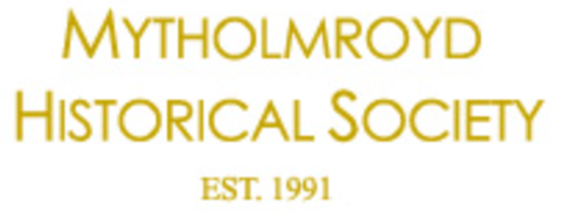On the evening of Friday 8th March 2024 at 7:30pm there was the seventh of the Winter programme of lectures for 2023 – 24. About 30 people were in attendance on a very cold night.
The Speaker was Barry Noble who spoke on the topic “ Churchill Remembered ”. Barry who now lives in East Anglia but lived in the Upper Calder Valley for many years often does
impersonations of Churchill all over the world now he is retired and will be at the Normandy and Arnham re-union of old comrades this year.
His condensed talk spoke about Churchill from his birth to his retirement from politics in 1974 and revealed his charismatic character, his exploits, his determination, independent thinking and a man who eventually became a dominant political figure. Controversial and divisive he may have been but destined to be a man born to be an ultimate leader.
It is impossible for me to write about all the points Barry made so I can only provide a summary.
Churchill was born on the 30th November 1874 at the ancestral home of Blenheim Palace which of course, was built as a gift to the nation by the first Duke Of Marlborough. His father took little interest in him and his mother Jenny was not close either. He was a lonely child and struggled at school but always enjoyed military history and writing. He eventually gained a place at Harrow and after a struggle gained a place at Sandhurst which was in line with his interest in militarism and his role as a fencer. As consequence he was to join the Royal Cavalry and as a soldier and also a part time journalist given his interest in writing, He became very wealthy as a result of the latter he travelled widely and included trips to Cuba to see the war that was taking place between the Spanish and the USA; Afghanistan, Egypt and of course, South Africa and the Boer War where he was captured by the Boers and imprisoned but escaped with the help of some bribery ( I remember at school in an English lesson reading all about his escape and South African experiences). During his time in Cuba he was injured and thereafter could no longer be a lancer or fencer and relied on a pistol only.
His economic ideology was based on neo – liberalism colonialism and therefore, he totally opposed independence for India.
He was a Conservative at heart and at 25 years despite some initial failure was elected as their MP but in 1904 defected to the Liberal Party climbing their ranks, He was appointed First Lord of the Admiralty ( the political head of the Royal Navy ) and is best known for the disastrous Gallipoli campaign which he designed and augmented. As a consequence, he resigned but then travelled to the Western Front to fight himself.
The inter –war years saw Churchill once again cross the floor to the Conservative Party and in 1924 became the Chancellor of the Exchequer where with the onset of the Great Depression of the 1930’s he controversially opted for Britain to rejoin the Gold Standard,
At the General Election Churchill lost his seat and spent much of 30’s out of office opposing efforts for Indian independence and warning of the rise of Nazi Germany.
Following Neville Chamberlain’s resignation and the efforts of Stanley Baldwin he was asked to become Prime Minister and following Germany’s invasion of Poland, Britain was forced to declare war on Nazi Germany.
Barry quoted a number of Churchill’s famous remarks which helped towards his inspired leadership of Britain during WW2 but despite his expected winning of the 1945 General Election was defeated by the landslide victory of Atlee and his leadership of the Labour Party.
It it often stated the Russian blood, USA money and the British bulldog spirit created by Churchill combined won the war against Nazi Germany.
In the 1951 General Election the Conservative government regained power and Churchill somewhat ailing now returned to power but his failing health was to force his final resignation in 1955.
Time precluded Churchill’s final years at Chartwell which he bought with his wealth earned through his writings as a war correspondent in 1925 and any questions from the audience’
The Chairman gave a brief vote of thanks for this enormous topic.
The Society meets every second Friday of the month at St. Michael’s Church Hall, Church Street off New Road ( adjacent to the Church ) in the Winter months which runs September to April inclusive at 7.30 pm. This is supplemented by two evening visits in the Summer to two local places of historic interest details of which will be announced. The annual day excursion has been revived this year and the trip is to the Elsecar Heritage Centre near Sheffield on Thursday 8th August. Cost is £18.00. Details to be announced later.
Cost of annual membership is £15 & for non-members £5 per visit. ( It is for many cheaper to become a member ) Remember all members and non members are welcome.
Note to all members : Due to errors the Blue Membership Card should be destroyed and all should now have the replacement new Red coloured Membership Card.
The next monthly meeting is on Friday 12th of April 7.30pm and the Speaker is Mr Stephen Caunce who will talk on “ The history of farming in the Industrial Pennines”
Mike Darke
Press Officer

